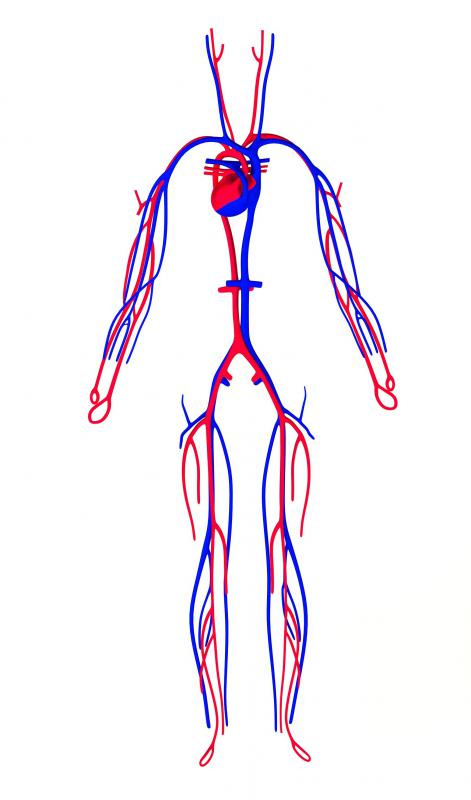At TheHealthBoard, we're committed to delivering accurate, trustworthy information. Our expert-authored content is rigorously fact-checked and sourced from credible authorities. Discover how we uphold the highest standards in providing you with reliable knowledge.
What is Cerebral Vascular Disease?
Cerebral vascular disease is a condition that limits or blocks blood supply to the brain. When this occurs, stroke is the most common outcome. Strokes brought about by cerebral vascular disease are classified into three separate categories: transient ischemic attacks, ischemic stroke, and hemorrhagic stroke. Regardless of the type, strokes can cause severe, often permanent brain damage or even death. According to medical experts, cerebral vascular disease is believed to be the third most common reason for death in the elderly.
Ischemic strokes are typically caused by blockages in the cardiovascular system, which are generally the result of blood clots or a buildup of plaque in the arteries. Hemorrhagic strokes happen when blood seeps into the brain as the result of a ruptured vessel or artery. Both of these events can be life threatening, and generally require immediate medical attention. Transient ischemic attacks are usually less serious and typically cause no permanent damage. They are caused by temporary blockages, and could occur without being noticed.

There are believed to be several factors that may put people at higher risk for cerebral vascular disease. These could include smoking, elevated cholesterol levels, and sedentary lifestyles. Also at greater risk are people who suffer from high blood pressure, diabetes, and narrowing or hardening of the arteries. Age and gender could be relevant, as most strokes occur in the elderly, and men have a higher risk than women. Heredity may play a part, as people with cerebral vascular disease in their family history are more likely to develop the condition themselves.

Symptoms that are common to strokes might include slurred or loss of speech, paralysis on one side of the body, and fainting. In addition, changes in personality and memory loss may occur. Generally, the greater the stroke event, the more pronounced are the symptoms. In some cases, the strokes are sudden and massive, and can result in instant death.

Medical research has developed many treatments for those who suffer from cerebral vascular disease. Blood thinners, such as aspirin are generally prescribed, and in some cases, surgery can be an effective treatment. Another common procedure is called angioplasty. It inflates the arteries to help ensure uninterrupted blood flow and does not require surgery.

Most experts agree that preventive treatment in younger people is the best way to avoid the risk of stroke. They advise getting plenty of exercise, and eating high fiber, low cholesterol diets. Avoiding tobacco and alcohol are also generally advised.
AS FEATURED ON:
AS FEATURED ON:
















Discuss this Article
Post your comments